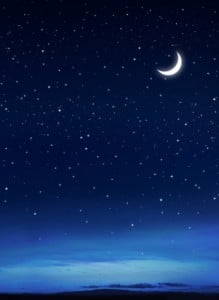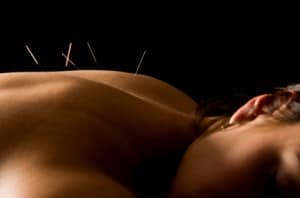 I have a client who moved here recently from a much warmer climate. About a month ago she came in saying, I don’t know what’s wrong with me. I’m tired all the time. I’m sleeping 9 or 10 hours a night, and I still don’t want to get out of bed. I don’t feel like doing much during the day. I’m not usually this unmotivated.
I have a client who moved here recently from a much warmer climate. About a month ago she came in saying, I don’t know what’s wrong with me. I’m tired all the time. I’m sleeping 9 or 10 hours a night, and I still don’t want to get out of bed. I don’t feel like doing much during the day. I’m not usually this unmotivated.
I thought for a minute and then realized, oh, she’s never done November in the Northern Hemisphere before! I told her, actually, this is normal. And sometime around May you’ll be feeling downright manic to make up for it. It’s part of the flow of life in a temperate zone.
Even those of us born and raised in this climate can forget that it’s completely natural to slow down this time of year. Our obligations don’t really change, and in fact can get ramped up during the holiday season. It’s actually fine to be less active and feel less ambitious – in fact, it’s important to get more rest in the winter.
Classical Chinese medical texts back this up: they advise us to to be in harmony with the season of winter by going to bed early and sleeping late. This allows the sun to warm and brighten the world a bit before we expose ourselves to it. We are also invited to eat more and exercise less, and partake in quieter, more internal pursuits that match the energy of the season. Sound good?
When Tiredness is Actually a Problem
Beyond these natural cycles, though, many of us experience ongoing tiredness that is severe enough to interfere with our functioning and enjoyment of life. And often we don’t know what to do about it. Resting seems logical but may not help. Exercise? Vitamins? Vacation? Good old-fashioned discipline?
The problem is, fatigue can come from so many different underlying causes, it’s hard to know how to respond. Chinese medicine recognizes two major categories of fatigue: depletion and stagnation. They feel similar (tired is tired, after all), but they have different causes, and different cures.
The better you understand your tiredness, the easier it is to do the things that help get your energy back. Following is a quick and easy guide to diagnosing your fatigue and responding to it.
The Three Types of Tiredness
Tired Type 1: Depleted
This is the most logical form of fatigue: you are simply, genuinely worn out. The hallmark of this tiredness is that rest helps. If you find you feel better in the morning or after a nap, and are more tired at the end of the day or after exercise, you’re dealing with depletion fatigue. To use an automotive analogy, it’s like having an empty gas tank. Out of fuel equals no energy.
The three best things to do for this kind of tiredness:
- Prioritize sleep and rest. You can actually solve your tiredness problem by recharging your battery, so make whatever changes you need to sleep later, have a restful relaxing weekend, and say no to some of the things that are tiring you out.
- Stop eating sweets. This can be hard, because you’re probably craving sugar. But sugar actually weakens the systems that convert food to energy. It also causes blood sugar crashes that only make you more hungry and more tired. Try eating “sweet” vegetables (squash, sweet potatoes, carrots, parsnips, onions) – they balance the blood sugar and help with sugar cravings.
- Eat bland, nourishing, easy-to-digest food. This is especially important if you are experiencing loss of appetite, bloating after eating, or other digestive symptoms. Chicken, rice, and vegetable soup are good choices.
Tired Type 2: Stuck
In this type of fatigue, you actually have plenty of energy in your system, but for some reason it’s not available. Rather than an empty tank, this is more like a clogged fuel line. It doesn’t matter if the tank is full, nothing’s getting to the engine, and the effect is exactly the same. In fact, filling an already-full tank only causes more problems.
The hallmark of this type of fatigue is that anything that gets you moving will increase your energy level. If you have a lot more energy after you exercise, or when you’re having fun or feeling interested and engaged, that’s the stuck pattern of tiredness. People with this kind of fatigue often feel terrible when they wake up, or when they’ve been sitting still for a long time (long meetings can be especially brutal). Stress usually makes this kind of tiredness worse, as well.
- Have fun. I’m totally serious about this. Stress, tension, and boredom cause the energy in your body to clamp down and stop flowing. Anything you find fun, interesting, or connecting will help get your energy moving again. Something that makes you laugh is perfect.
- Exercise. This can be hard because you might feel too tired and unmotivated to want to exercise. Commit to doing it anyway. Also, please don’t exercise in a grim, check-this-off-my-list kind of way. It’s much more beneficial if it’s relaxed and fun. Try to make a gym date with friends, dance in the kitchen, play with the dog, something you actually enjoy.
- Avoid greasy, heavy foods. These clog the energy channels in the body and weigh you down. Green vegetables are particularly good for the systems that keep energy flowing in your body.
Tired Type 3: Wired and Tired
Ever have that feeling where you’re exhausted and hyper at the same time? This is a particularly tough one, since it’s impossible to relax or get any real rest, but activity only makes you more tired.
This type of fatigue is actually a specific kind of depletion, known as “yin deficiency” in Chinese medicine. Yin refers to the deep, quiet, cooling, soothing, nourishing and grounding aspect of your energy. This is the reserve you tap into when you’re running on empty. When you start burning through too much of that reserve, you’re left with nothing but nervous energy and underlying exhaustion.
This is really common in our culture, because we’re all about doing, and doing, and doing more. We’re not so great at resting, or just letting things be, or replenishing our reserves.
If you feel profoundly drained and highly agitated at the same time, this is probably you. You might be irritable, anxious, or easily overwhelmed. Sleep is often restless, with frequent waking. You might also feel dried-out, thirsty, or hot.
Three best things to do for this:
- Make room for quiet relaxation. You’re tapped out on the deepest level, and you need to nourish yourself on that level. Anything that brings you to a state of deep relaxation and/or spiritual connection is helpful. Meditation, yoga, prayer, quiet time in nature, listening to music, making art, are things that work for people. (Watching TV doesn’t count, it’s too agitating).
- Stop using caffeine and other stimulants. Completely. I know, it may seem like the only thing that’s keeping you going, but it only creates false energy and further depletes your reserves. Try doing what you need to do from a more authentic energy, even if it’s lower-key than the pushing-through style you’re used to using. You might be surprised at the effectiveness and connection that can come from this place.
- Incorporate foods that help nourish the “yin”: Almonds, eggs, soy products, small amounts of high quality (ie organic) dairy, and bee pollen are good choices. Avoid hot spicy food, especially if you feel overheated or agitated.
Just Do One Thing
The hardest part, of course, is getting started with any of these changes. When you’re tired, the last thing you want is to start a new habit, or give up something you’ve been using to get yourself through the day.
Start with the suggestion that sounds easiest, and as you feel better the other changes will seem more manageable too. And you’ll start the new year with a little more energy to put toward your dreams and goals for 2013!
When You Need More Help
 Severe or persistent fatigue may require treatment in addition to diet and lifestyle adjustments. If you’ve tried these suggestions and they don’t help; or you can’t even find the wherewithal to do any of them; or if your tiredness is very long-standing or makes it impossible to function well — please consider getting some help.
Severe or persistent fatigue may require treatment in addition to diet and lifestyle adjustments. If you’ve tried these suggestions and they don’t help; or you can’t even find the wherewithal to do any of them; or if your tiredness is very long-standing or makes it impossible to function well — please consider getting some help.
Your first step should be to visit your doctor in order to rule out any serious health condition as an underlying cause. Most of the time, fatigue is coming from our lives rather than a major illness, but it’s best to be sure. Chinese medicine can be helpful even if your doctor can’t diagnose anything; it’s also very supportive, alongside Western medical care, if you are being treated for something more serious.
Both acupuncture and herbs can be very effective in treating fatigue. Acupuncture is particularly helpful for the “stuck” kind of tiredness, since it quickly and effectively gets energy moving, and can address the underlying causes of stagnation. Herbal medicine may be more powerful for the other two types of fatigue, since it directly adds nourishment to the system to remedy any depletion.
In reality, persistent tiredness is usually a combination of patterns, requiring a mix of different treatment strategies.
Patients often find that treatment for fatigue also improves other symptoms, such as digestive problems, headaches, insomnia, anxiety, or allergies.
It’s really okay if you need a little jump-start — it’s what your practitioner is there for! Treatment can help you find the energy to make changes that ultimately put your health and energy in your own hands.

